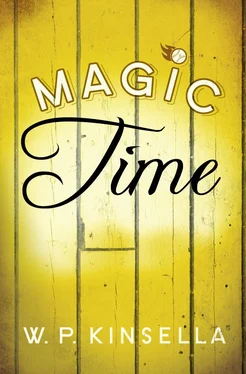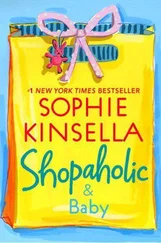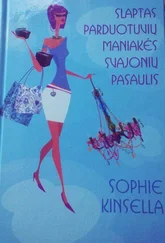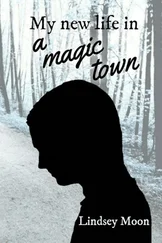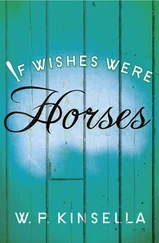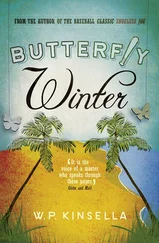SIX Contents Title Page Magic Time BY W. P. KINSELLA Copyright The Friday Project An imprint of HarperCollins Publishers Ltd 77–85 Fulham Palace Road Hammersmith, London W6 8JB www.harpercollins.co.uk This ebook first published in Great Britain by HarperCollins Publishers Ltd 2014 Copyright © W. P. Kinsella 2001 Cover design © HarperCollins Publishers Ltd 2014 W. P. Kinsella asserts the moral right to be identified as the author of this work. FIRST EDITION A catalogue copy of this book is available from the British Library. This novel is entirely a work of fiction. The names, characters and incidents portrayed in it are the work of the author’s imagination. Any resemblance to actual persons, living or dead, events or localities is entirely coincidental. All rights reserved under International and Pan-American Copyright Conventions. By payment of the required fees, you have been granted the non-exclusive, non-transferable right to access and read the text of this e-book on screen. No part of this text may be reproduced, transmitted, downloaded, decompiled, reverse engineered, or stored in or introduced into any information storage and retrieval system, in any form or by any means, whether electronic or mechanical, now known or hereinafter invented, without the express written permission of HarperCollins. Source ISBN: 9780007497577 Ebook Edition © July 2014 ISBN: 9780007497584 Version 2014-07-31 Prologue 1: Judging Distances ONE TWO THREE FOUR FIVE 2: One Road Runs Straight SIX SEVEN EIGHT NINE TEN 3: Fred Noonan’s Town ELEVEN TWELVE THIRTEEN FOURTEEN FIFTEEN SIXTEEN 4: Barry McMartin SEVENTEEN EIGHTEEN 5: Safe at Home NINETEEN TWENTY TWENTY-ONE TWENTY-TWO TWENTY-THREE 6: Magic Time TWENTY-FOUR TWENTY-FIVE TWENTY-SIX TWENTY-SEVEN Also by the W.P. Kinsella About the Publisher
My dad must have said it a thousand times. ‘For a lead-off batter, a walk is as good as a hit. A walk and a stolen base is as good as a double.’ I can still hear those words echoing in my eight-year-old ears. It didn’t matter that I was never a power hitter, as long as I learned the strike zone, which I did.
I learned to bunt, both for a base hit, and in order to sacrifice a runner along. The hardest thing, when I was a kid, was to hit the ball on the ground up the middle. The assumption was that just making contact would earn me a certain number of base hits, and I was so fast I was almost impossible to double up on a ground ball. But, oh how hard that was to do, for every kid has fantasies of blasting the ball out of the park, of hitting a blue darter like a lightning bolt off the outfield fence.
The only time I tried to hit the ball in the air was when a sacrifice fly was called for. I never tried for home runs or extra base hits, controlling my desire to be a hero in return for making a solid contribution.
In the evenings Dad and I would practice in the back yard. Dad would lay down a towel, white as a patch of snow, up the third-base line where a perfect bunt would come to rest, good not only for a sacrifice but often a base hit. Dad would pitch to me while I practiced bunting.
‘Pretend the towel is the mother and the ball is the baby, and it’s your job to reunite the two,’ Dad would shout.
Other times he’d yell, ‘Suicide squeeze!’ and drill in a high hard one that I was somehow supposed to lay down.
A hundred pitches minimum every evening, at ever-increasing speed, while I tried to get the ball down in the dirt so it would end up on the towel, while I pictured myself streaking safely across first, the runner in front of me perhaps taking an extra base when the hurried throw to first went wild.
Then there’d be another hundred pitches while I tried to rap the ball straight up the middle on the ground, controlling my urge to belt the ball about four hundred feet, because Dad’s pitches looked like white balloons floating toward me.
‘Take the sure thing,’ he’d say. ‘Don’t try to be a hero, hit the ball on the ground for a single. You’ve only got warning-track power at best, so don’t waste your life hitting routine flies to the outfield.’
Following that we’d take a break for orange juice or lemonade. Then there’d be another hundred pitches, which I practiced hitting to the right side, behind the runner, trying for a base hit, but willing to give myself up in order to advance the base runner.
‘The three-four-five men are the power hitters,’ Dad always said. ‘Let them do their job. Your only worry is to get on base or, if you can’t, at least advance the runners.’
Конец ознакомительного фрагмента.
Текст предоставлен ООО «ЛитРес».
Прочитайте эту книгу целиком, купив полную легальную версию на ЛитРес.
Безопасно оплатить книгу можно банковской картой Visa, MasterCard, Maestro, со счета мобильного телефона, с платежного терминала, в салоне МТС или Связной, через PayPal, WebMoney, Яндекс.Деньги, QIWI Кошелек, бонусными картами или другим удобным Вам способом.
